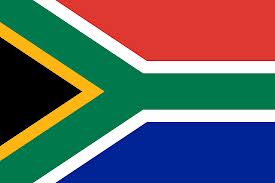Johannesburg — The world's largest antiretroviral (ARV) programme is in crisis. One in five health facilities in South Africa reported a stock-out of antiretroviral (ARV) or tuberculosis (TB) medication in the past three months, putting the lives of many patients in jeopardy, according to activists.
The stakes are dangerously high: over 2.4 million people are receiving ARVs at public sector facilities, while the TB programme treats over 300,000 people every year. "The actual and true consequence of a collapse of the supply system is human loss… It cannot be forgotten that treatment interruptions can lead to unnecessary suffering, costly resistance and, in the worst cases, death," warned a new report from the Stop Stock Outs project, a coalition of NGOs that includes Médecins Sans Frontières, Treatment Action Campaign, and the Rural Doctors Association of South Africa.
"There is no ARV crisis in South Africa… the issue is over-exaggerated," said Department of health spokesman Joe Maila. The report by Stop Stock Outs, released ahead of World AIDS Day, is the largest survey to date on the extent of stock-outs and shortages in the country – over 60 percent of state facilities were interviewed.
If 20 percent of clinics have reported stock-outs, it's a dire indictment," Dr Indira Govender, of the Rural Doctors Association of Southern Africa, told journalists at the release of the report.
The picture in the country's nine provinces varies. Free State was the most affected province, with over half of its clinics and hospitals reporting stock-outs, while only 4.4 percent of facilities in North West province were affected. ARV stock-outs lasted for a month on average, with the longest in Free State and Limpopo provinces.
More than 400,000 patients are served by the clinics experiencing stock-outs, escalating their risk of treatment interruption, poor adherence, and drug resistance.
To reduce the impact of the shortages, health workers were forced to borrow medicines from other facilities and in some cases were giving patients medication supplies for shorter periods. But not all patients can afford to come regularly enough to maintain adherence, and could become sick or default on treatment as a result, the report warned. A worrying development was that in 20 percent of cases, patients were sent home without receiving treatment or being referred elsewhere. Healthcare workers who were forced to turn away patients, or to decide who would get treatment and who would not, were demoralised.
"I am a patient at my clinic and have been on ARVs since 2005. I went to the clinic [earlier] this year and was given only two weeks' supply and told to come back when [it was] finished. When I went back at the end of two weeks, I was told that the medicines were out of stock and I went for two weeks without treatment. At present, I have found out that my CD4 count has decreased from 1,000 to 500. Five people from my support group have died in the past year… I am scared of developing resistance," a patient was quoted as saying in the report.
Although the survey focused on ARV and TB medicines, other essential drugs were also in short supply. The report noted that stock-outs of vaccines were less severe than for ARV and TB medicines, but widespread nonetheless, and could contribute to avoidable diseases, particularly in children. Some provinces were more affected than others, with up to 1 in 3 facilities experiencing recent vaccine stock-outs in the worst cases.
Trying to understand the exact cause of the problem is difficult. However, some "fundamental weaknesses" in the health system were identified. The current passive monitoring – waiting for staff to report stock-outs – was not working, and the report recommended active, systematic screening that is communicated to a rapid response team ready to intervene to prevent and/or resolve stock-outs without delay.
There was also a lack of systematic follow-up of orders and a delayed response to supply-side errors. "A number of health professionals reported that primary healthcare staff often lack adequate training to manage medication supply. Staff at facility level also need to be trained on strategies to ensure minimal harm to patients if a stock item is not available," the report suggested.
[ This report does not necessarily reflect the views of the United Nations. ]
allAfrica.com

